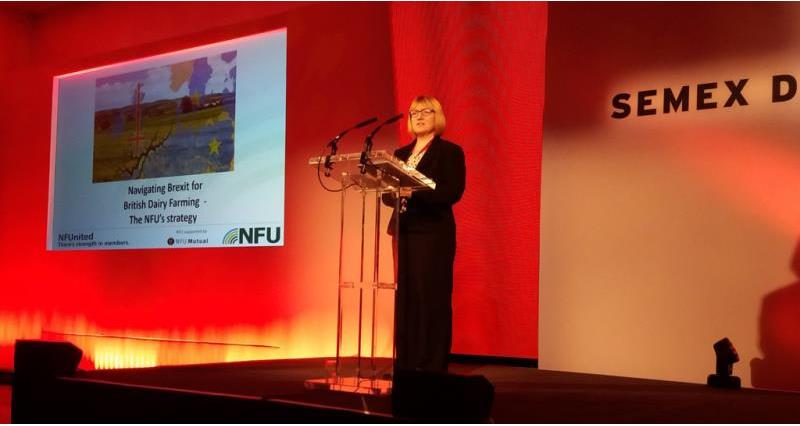Access to EU markets, labour availability and dealing with market volatility all key to successful dairy sector post-Brexit.
Mrs Soutar, chief EU exit and international trade adviser, told delegates at the SEMEX Conference in Glasgow yesterday (Monday) that the NFU will continue to lobby Government to ensure that the dairy sector can trade with confidence and certainty.
She said: “It is absolutely vital we ensure that access into existing markets is maintained - 80% of British dairy exports go to EU countries and in 2015 these exports valued £800m.
“It is also essential that free movement across the Irish border is maintained. From the dairy produce we export to the EU, 67% of its value goes to Ireland, and so we must ensure that well-integrated, historical supply chains are not disrupted.
"Growing our international trade is not just about the Government being able to sign new agreements with countries like New Zealand, USA and Australia. It's about ensuring the right effort is invested in making trade a success, whether that's in terms of providing market intelligence and research or by means of efficient export certification systems.
“Access to permanent labour is also having an impact on dairy farms and its allied industries whether that’s a need for veterinarians to tanker drivers, or staff in dairy processing plants. It is crucial that the Government addresses the sector's concerns as soon as possible to ensure that dairy farming has access to a competent and reliable workforce, now and post-Brexit.
“Meanwhile, business income from dairy farming is highly uncertain, having fluctuated by an average of 74% each year since 2010. Few, if indeed any, other sectors of the economy experience such extremes of volatility.
“The NFU is calling on Government to ensure that farmers have access to a range of tools to help manage volatility.
"It is essential that all options, and the role of Government in supporting solutions, is fully considered in the forthcoming command paper on the future of farm support policy once we leave the Common Agricultural Policy (CAP).
“With 2018 being a key year for Brexit negotiations, we have been offered the opportunity for change, to build a bold and ambitious policy environment for the future. I know that there is a significant amount of uncertainty on dairy farms across the country. But I also know that dairy farmers are up for the challenge.”
